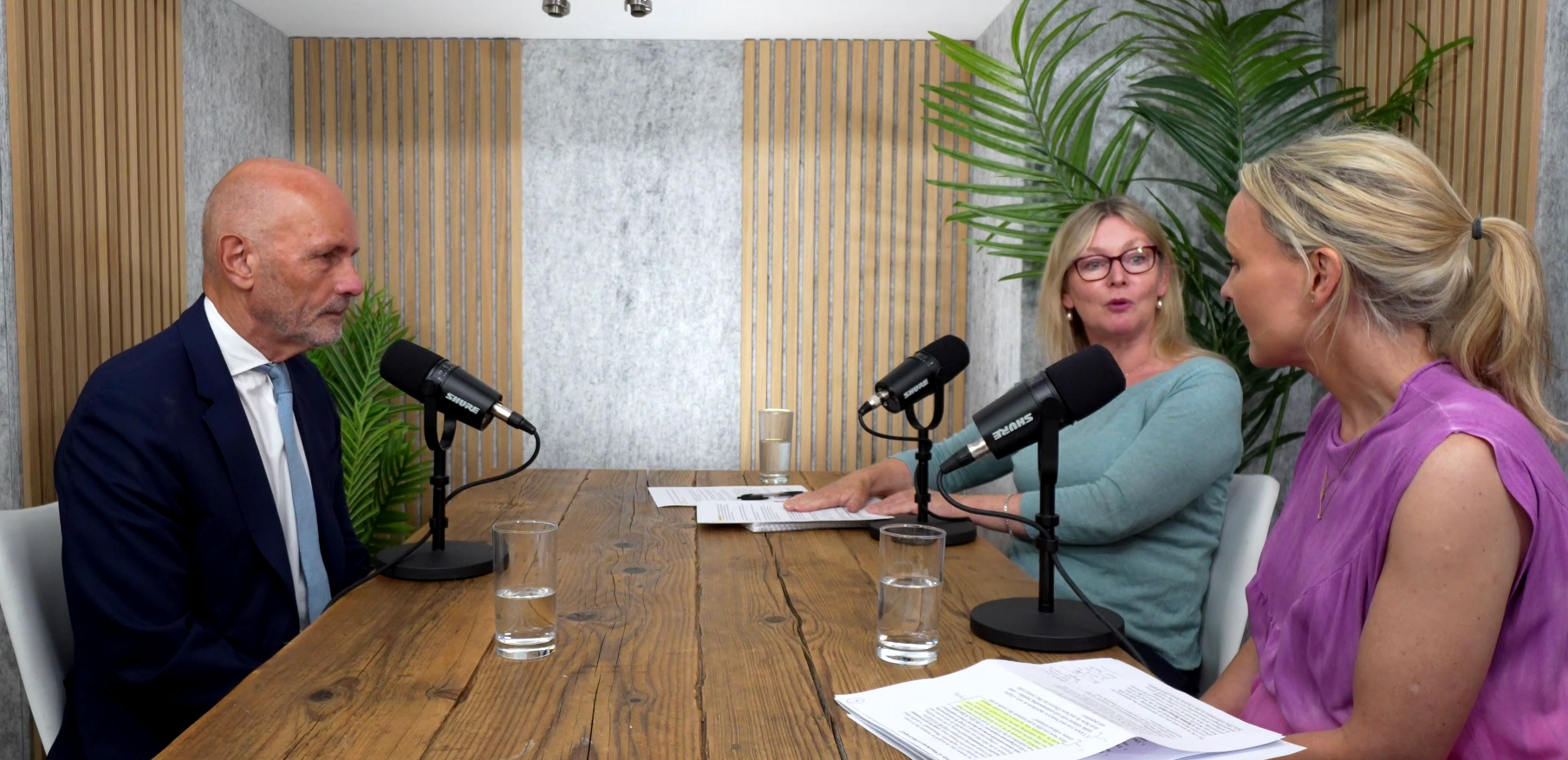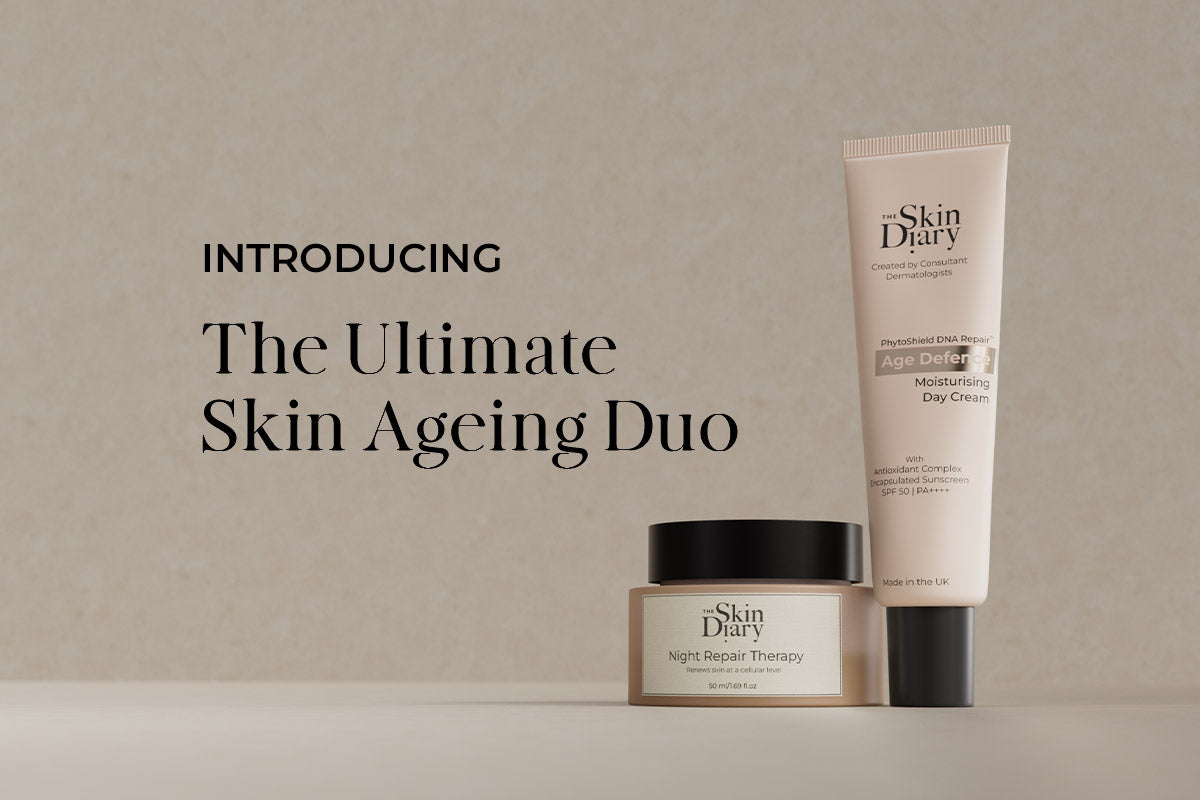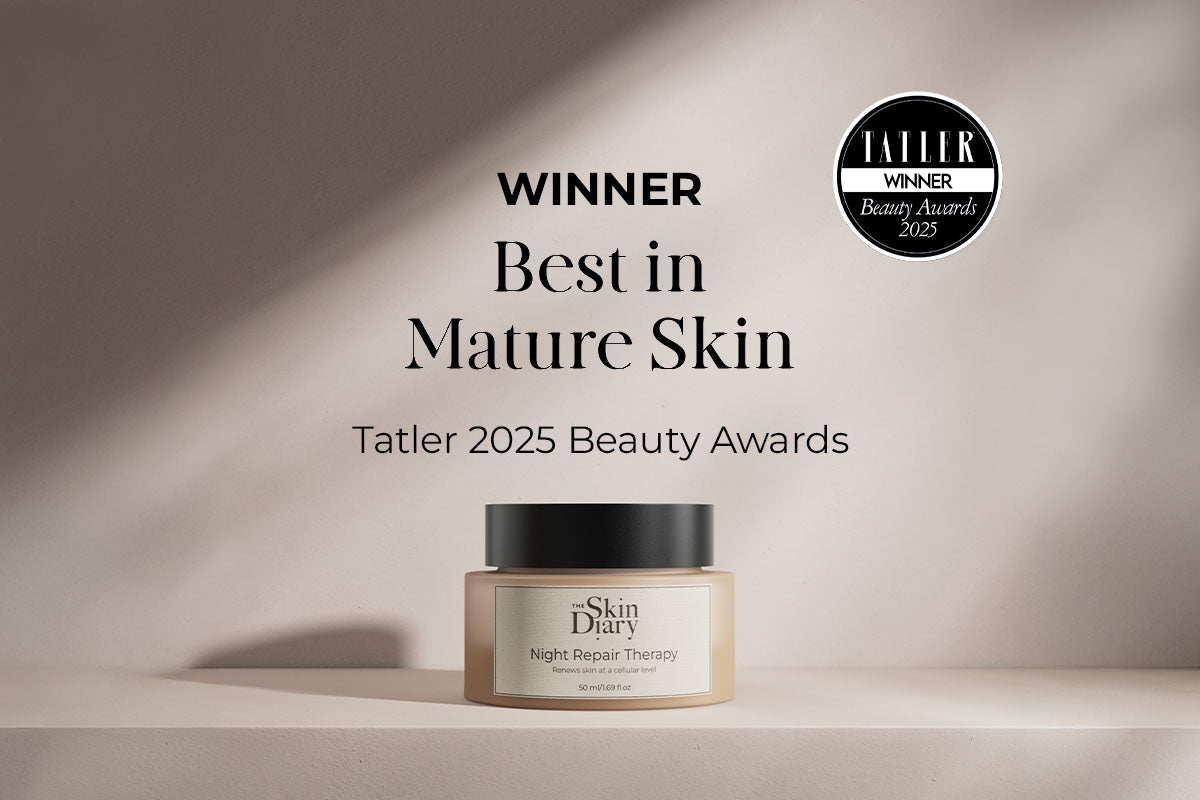There is such an abundance of skincare information out there today that it’s difficult to know what to follow and what is simply nonsense. Our golden rule is to always follow the experts, which is why we’re co-founded by world-leading consultant dermatologists and researchers.
To mark the launch of episode 3 of Skin Ageing Unlocked with one of The Skin Diary’s co-founders, Professor Chris Griffiths OBE (who, yes, is the 3rd most cited dermatologist in the world), we’ve taken three studies the experts discuss in the podcast that are well worth knowing.
1. You don’t need irritation to get the benefits of retinoids
Professor Griffiths explained that the idea that your retinoid is only working if it’s causing irritation is outdated. “We compared a clinical study using 0.1% tretinoin (the retin-A cream), which is the highest concentration you can get, against 0.025%—a quarter of the strength—and not surprisingly, the 0.025%, retinoid cream is far less irritating. In fact, almost not irritating. But you’ve got the same clinical benefit, it just took a little bit longer with the 0.025% because it’s not so powerful. That means that you can divorce the irritation, or retinoid dermatitis I’d call it, from the clinical benefit.”
2. Inflammation doesn’t just benefit the skin, it benefits the whole body
In ageing, there’s an inflammatory component, which you may have heard as inflam-ageing. “Just a few weeks ago, there was a very exciting study that was published with what’s called a biologic therapy targeting an immune mediator called interleukin-11,” explains Prof. Griffiths. “It showed that mice that had received this, reducing interleukin-11 levels, lived longer; 25% longer. But importantly, we’re not just interested in lifespan, it’s about health span. So how long are you healthy for? Interestingly, in those mice, not only did they live longer, but their frailty, their impaired health, was also delayed. That’s almost the holy grail. Now there’s a very strong interest in how you prevent inflammation, what role does inflammation play in driving ageing in any tissue. We know that in photo-ageing there’s a marked inflammatory infiltrate there.”
3. The scientific reason youngsters don’t need retinoids
If retinoids are the gold-standard of ageing, many people wonder why experts are so against pre-teens and teens using them. There’s a scientific reason and that’s thanks to a study Prof. Griffiths did alongside Dr. John J Voorhees in the ‘90s, which looked into intrinsically aged skin, photo-damaged/exposed skin and juvenile skin, with findings showing retinoids worked on the intrinsically and photo-damaged skin but not on the juvenile skin.
“One of the many fascinating things about retinoids is that they normalise a process, so if cells are proliferating rapidly, it will reduce it,” Griffiths says. “In photoageing or ageing skin, there’s a slow down in the production of collagen, when retinoids stimulate this collagen production, it brings things back to a midline.”
Think about it a little like playing tennis,” it brings it back to the midline. If it’s overshot, it brings it back. If it’s undercooked, it brings it back, so it normalises what’s either hyper or hypo-driven,” Griffiths adds. “That’s the scientific basis for not giving your children actives in their skincare. They need sunscreen, that’s what they need,” says co-host and The Skin Diary co-founder Dr. Clare Kiely.
For more information on skin ageing from Professor Chris Griffiths, listen to the full episode of Skin Ageing Unlocked, here.





